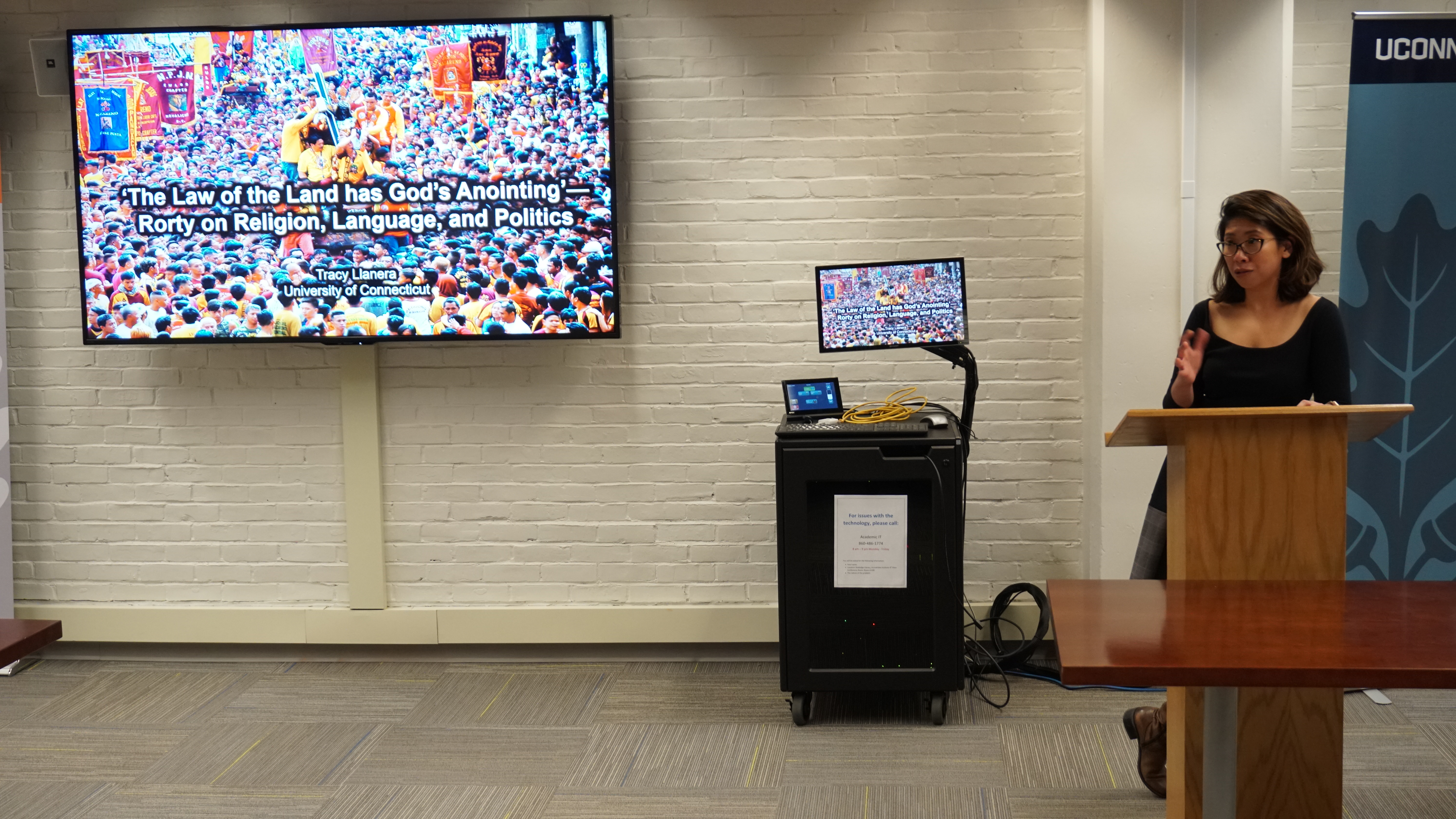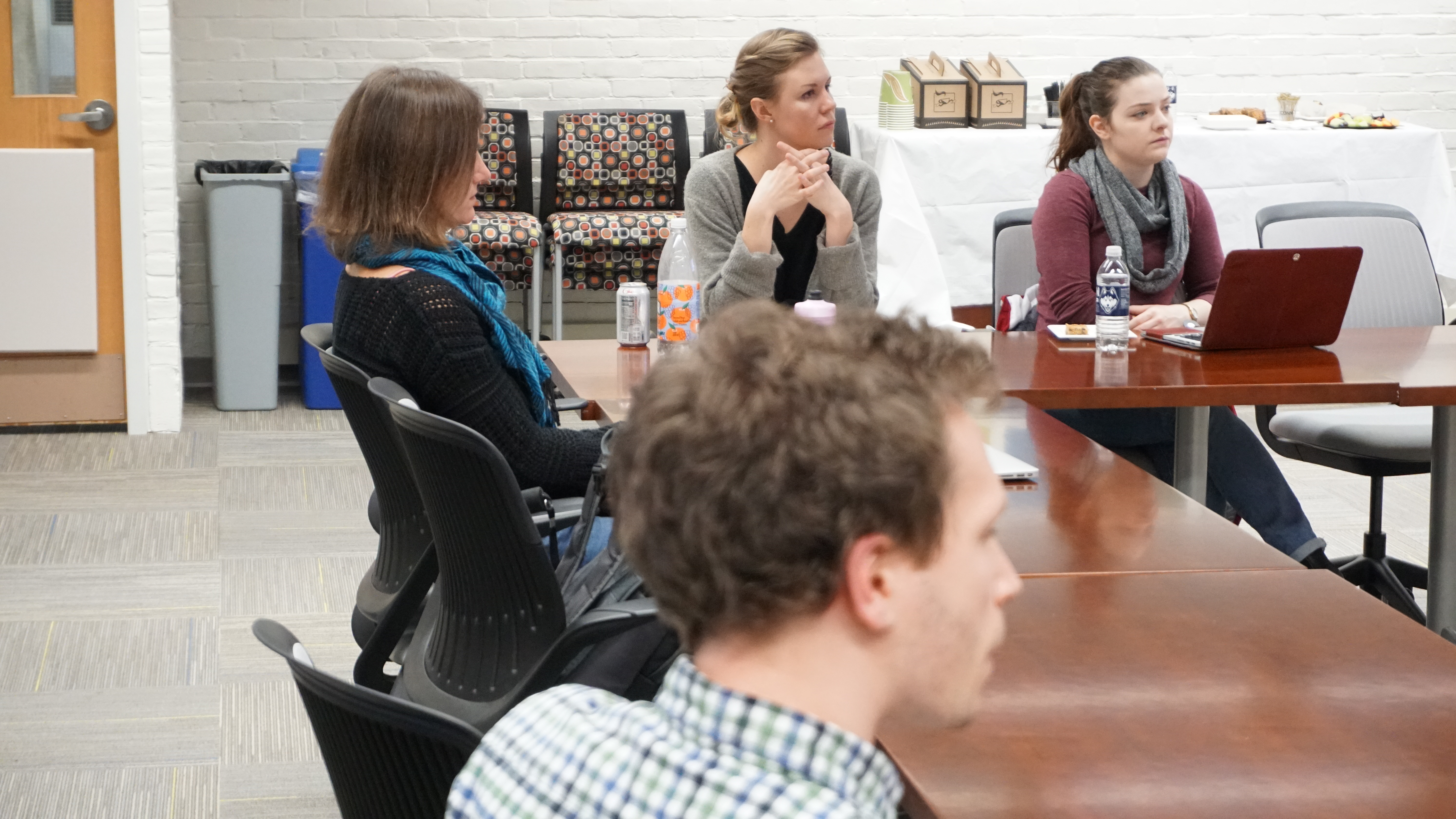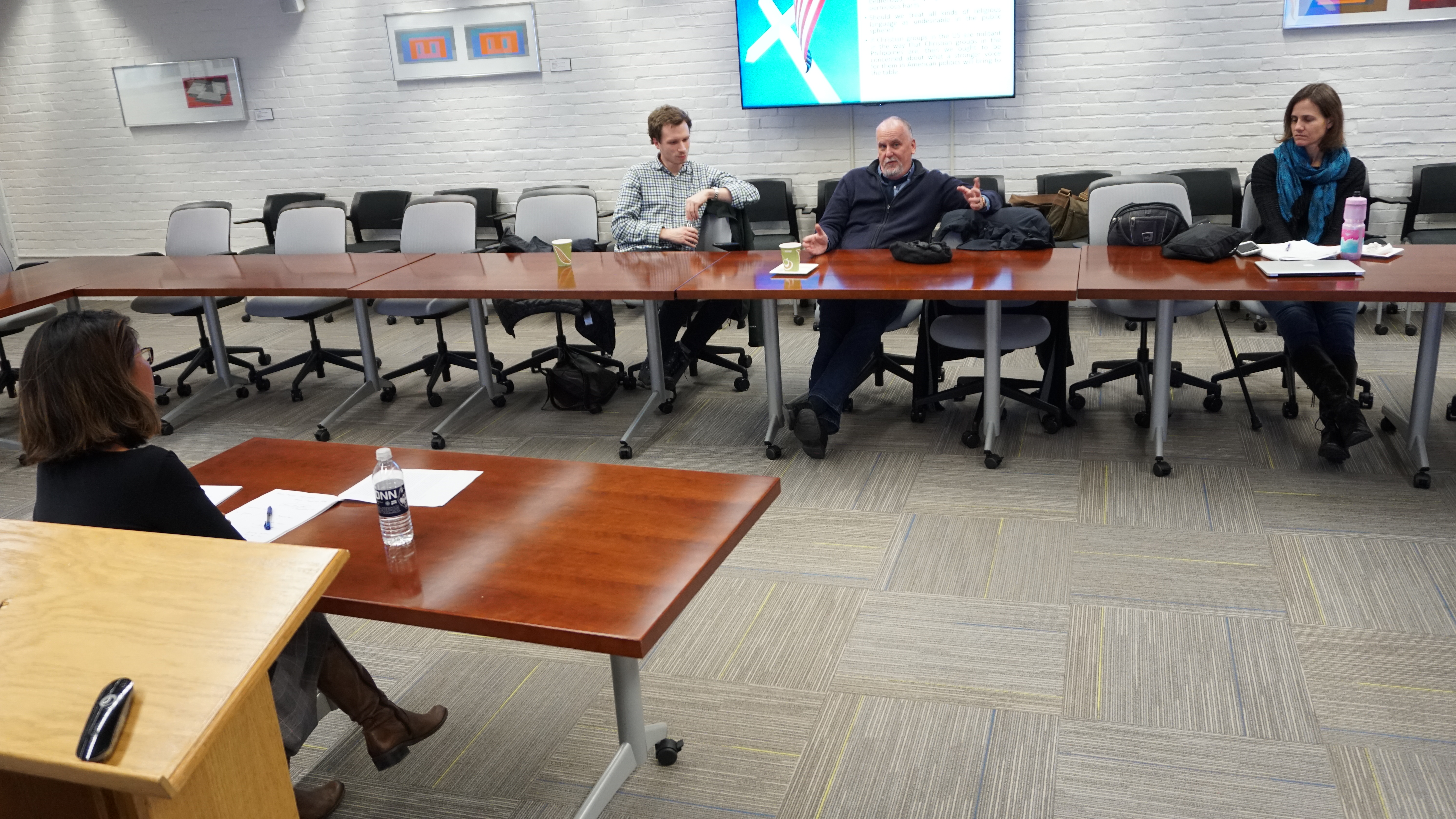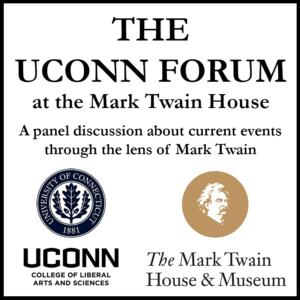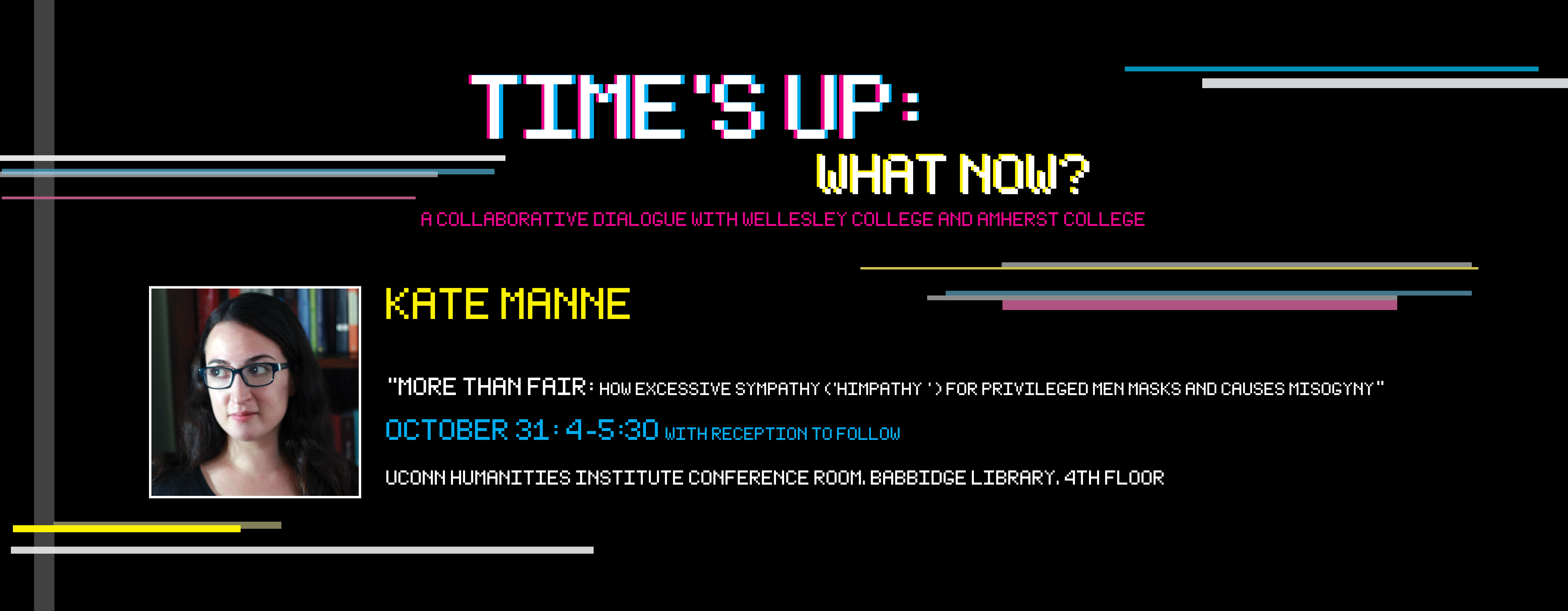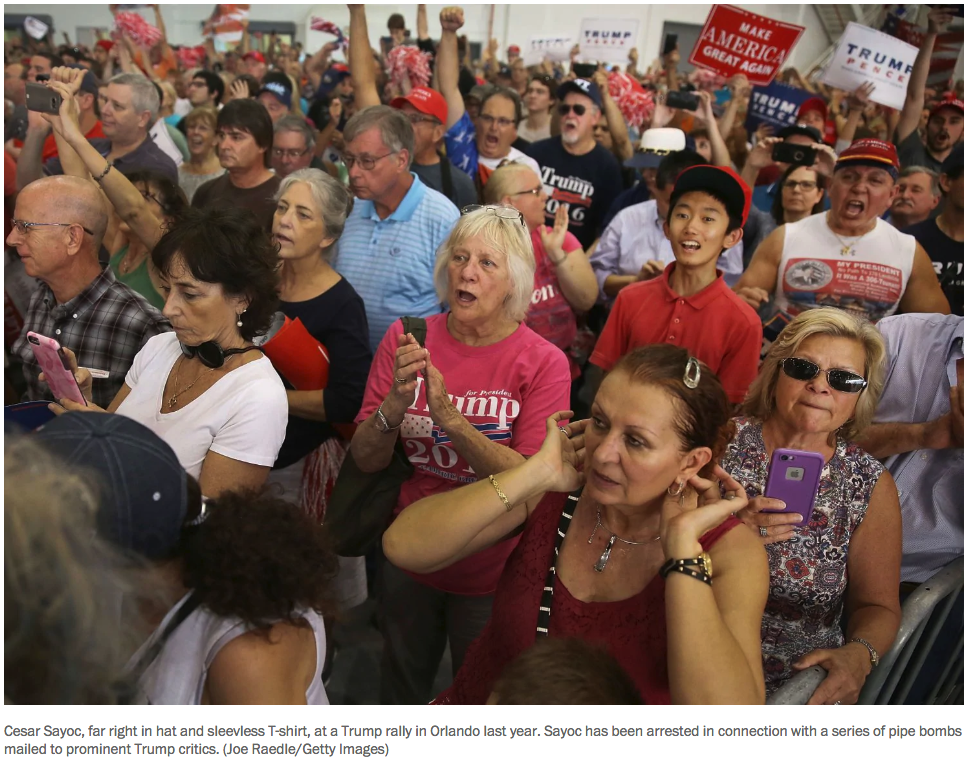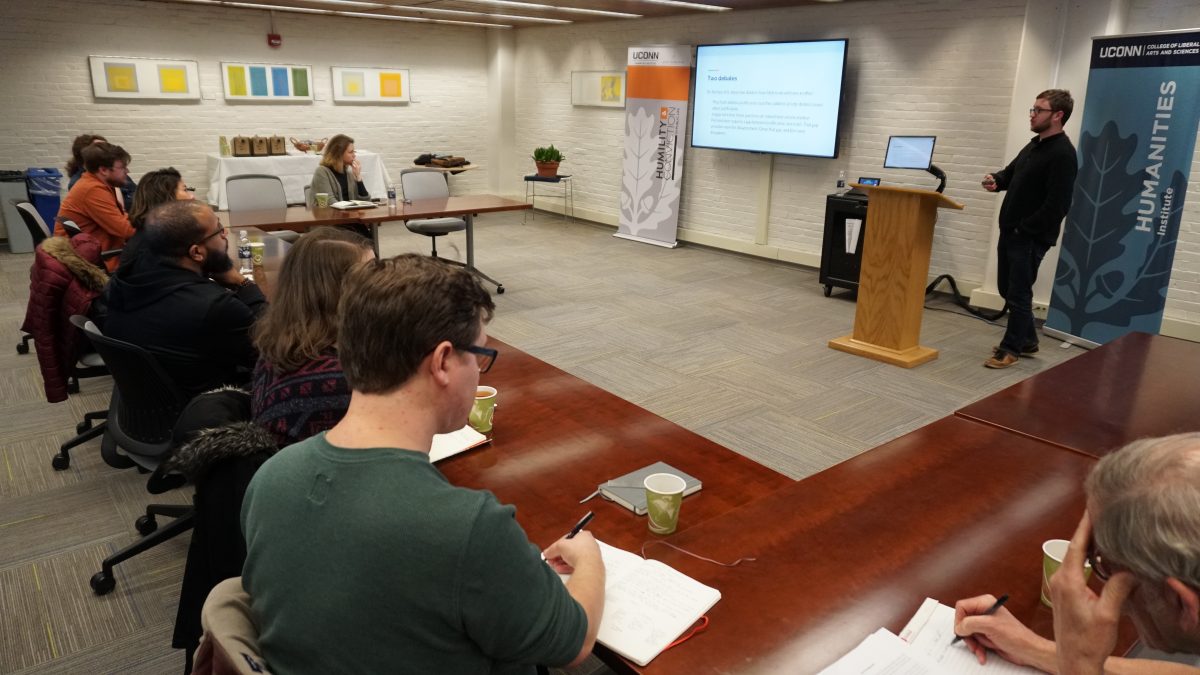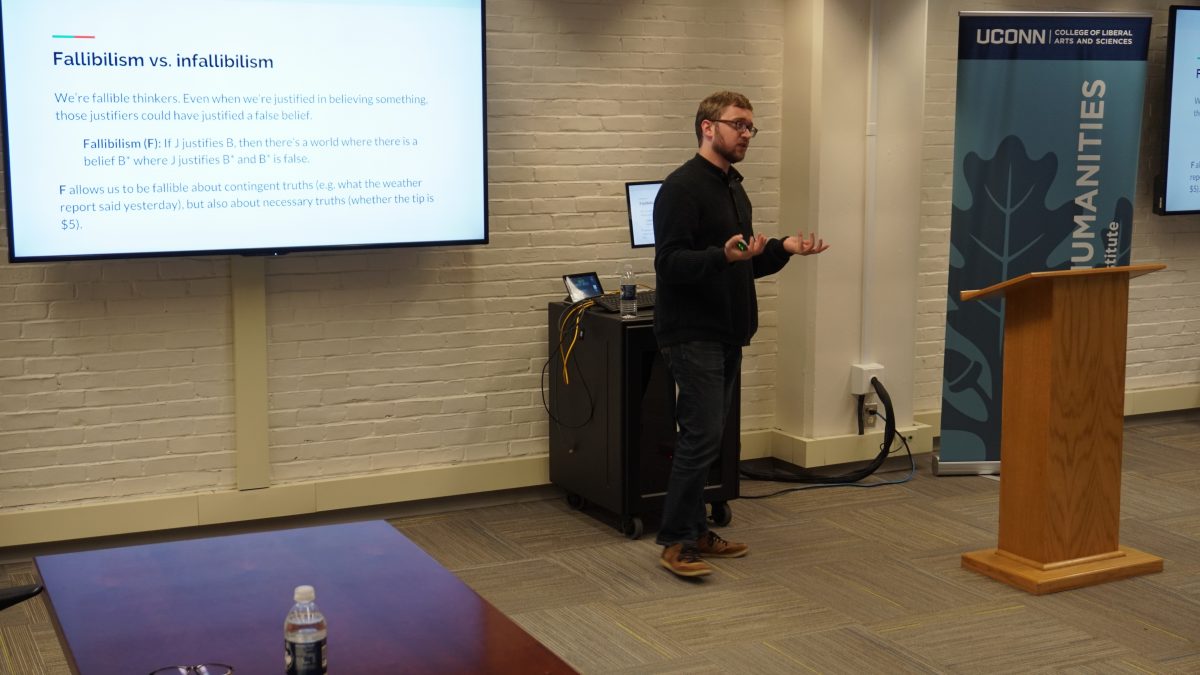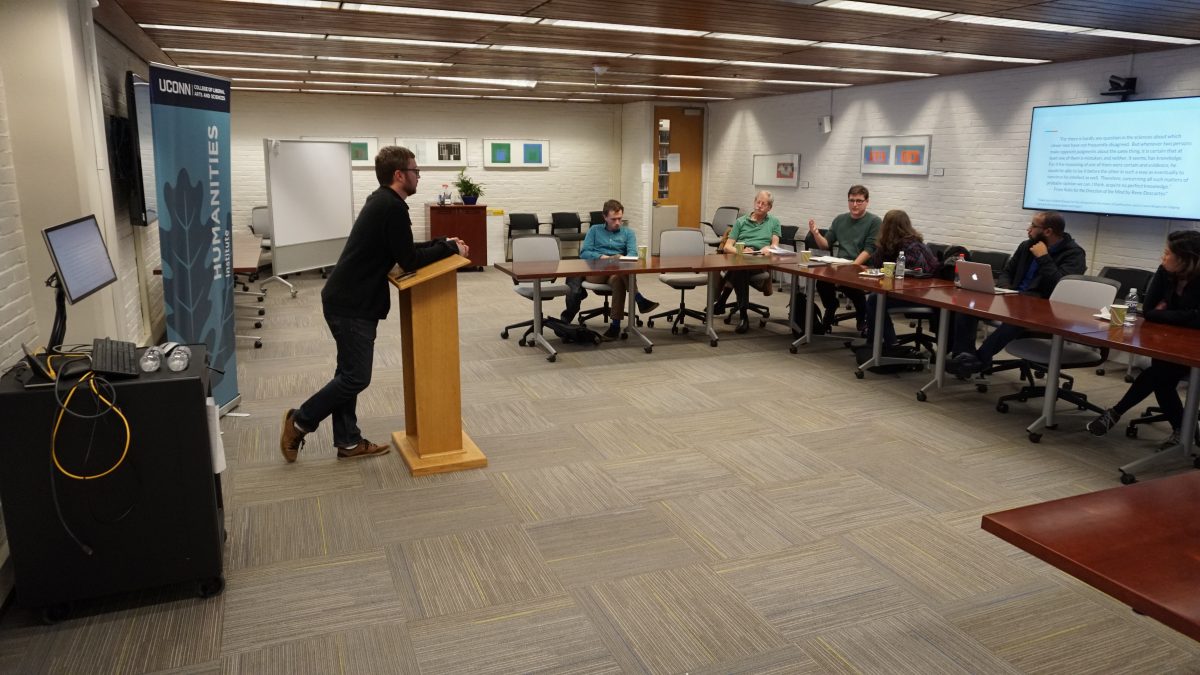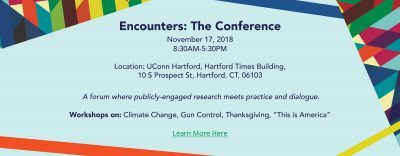
Encounters: The Conference
Date: November 17, 2018
Time: 8:30AM-5:30PM
Location: UConn Hartford, Hartford Times Building, 10 S Prospect St, Hartford, CT, 06103
Cost: FREE
Registration: Closed.
If you would like to be added to the waitlist, please contact Dana Miranda at dana.miranda@uconn.edu.
Introduction:
The Encounters Series, a program dedicated to fostering unexpected conversations around divisive issues and obscure knowledge, began in Spring 2017 with the sponsorship of the Humility & Conviction in Public Life project (University of Connecticut), the Hartford Public Library (Hartford History Center), the Wadsworth Atheneum (The Amistad Center for Art & Culture), Connecticut’s Old State House, and the Akomawt Educational Initiative.
The Encounters Series is a structured-dialogue model that allows participants to come face-to-face and converse about the issues that matter in their community. Encounters dives deeply into these subjects through facilitated, small-group dialogues followed by a “question and answer”-style conversation with UConn faculty and community partners. Readings are provided beforehand to better encourage informed and informal dialogue within conversations that often prove to be polarizing, and thus unproductive.
Encounters: The Conference is a participatory event around the power of dialogue. Participants will explore various dialogic models and learn how they can bring such practices to their own settings. In particular, the conference will demonstrate a new, collaboratively-developed dialogue model, created in Connecticut, that communities can run anywhere and everywhere. Attendees will experience one of four Encounters in the morning, learn how to create and run dialogues in our How-to Workshop, and take part in a broader, concluding conversation about public dialogue with experts from around the country.
Schedule:
8:30 Registration opens
9:00-10:00 Breakfast and Opening Program (breakfast will be provided)
10:00-12:00 Encounters Sessions
12:00-1:00 Lunch (provided)
1:00-3:00 How-to Workshops / Dialogue about Dialogue
3:00-3:30 Break
3:30-5:00 Dialogue Implementation and Program Strategizing
5:30-6:30 Closing Reception
Encounters Descriptions:
Climate Change: The effects of climate change on the environment have been hotly contested. Some argue that humanity has been the catalyst for these changes, while others believe them to be a natural part of the Earth’s climatological development. This Encounters will invite participants into a conversation about climate change and consider how political disagreements about this issue teach us about the world we all inhabit.
- Rapid Change – A Tale of Two Species by Elaina Hancock
- The Scientific Consensus on Climate Change.pdf by Naomi Oreskes
- Hidden Costs of Climate Change Running Hundreds of Billions a Year by Stephen Leahy
- Why we are poles apart on climate change.pdf by Dan Kahan
- History and future of the scientific consensus on anthropogenic global warming .pdfby Fritz Reusswig
Gun Control: The Second Amendment to the U.S. Constitution says, “A well regulated militia, being necessary to the security of a free state, the right of the people to keep and bear arms, shall not be infringed.” The need for this amendment has been questioned in the face of gun violence now occurring in modern society. This Encounters will invite participants to dialogue about these dueling issues.
- Second Amendment, US Constitution .pdf
- Historical Context of the Second Amendment.pdf by Roxanne Dunbar-Ortiz
- Mass shootings since Sandy Hook, in one map by German Lopez and Kavya Sukumar
- School-Shooting Survivors Bear Their Scars, and Bear Witness as told to Jared Soule and Amelia Schonbek
“Thanksgiving”: Thanksgiving has been observed in the United States intermittently since the 1780s. Increasingly, historians and Indigenous peoples are drawing our attention to the problems inherent in the traditional American Thanksgiving narrative. This Encounters will invite participants to explore this “holiday” in greater depth and consider different perspectives on this national observation.
- Thanksgiving: A Native American View by Jacqueline Keeler
- Presidential Thanksgiving Proclamations.pdf, 1861-1869
- Edward Winslow’s Account of Plymouth.docx, 1621
- William Bradford’s History of Plymouth Plantation.docx, 1621
This Is America: Childish Gambino’s 2018 music video for This is America sparked a national conversation about history, race, and American popular culture. This Encounters will explore the interplay of history, race, and artistic expression as seen in the video. Participants will be invited to examine the ways pop culture engages with and responds to pressing issues in American society. ***Please note: as part of this Encounters, we will be watching the video for This is America, which contains violent content.***
- This Is America by Childish Gambino
- The Cast of ‘Atlanta’ on Trump, Race and Fame by Joe Coscarelli
- The Difficulty in Defining Donald Glover’s ‘This is America’by Kitanya Harrison
- ‘This Is America’ Is the New Minstrel Show by Armond White
- Why the Dancing Makes ‘This Is America’ So Uncomfortable to Watch by Aida Amoako
- Black Genius: A Privilege Afforded Only to Straight Black Men by George Johnson
- Minstrel Choruses.pdf
Afternoon Workshop:
The first afternoon session (1:00-3:00) will be devoted to giving you the tools you need to hold an Encounters event in your community. Participants will have the ability to choose between one of three workshops tailored to the needs of their particular type of organization: 1) colleges/universities, 2) non-profits and community organizations (libraries, museums, nonprofits, religious organizations, etc.), and 3) high schools/youth groups. Participants will receive resources, including a handbook, which will help them to plan their own dialogues. Participants will also have the opportunity to talk about other dialogue models that could be useful in their communities, as well as to share their own experiences and expertise.
Registration: Closed.
If you would like to be added to the waitlist, please contact Dana Miranda at dana.miranda@uconn.edu.
This event is supported by Campus Compact for Southern New England (CCSNE), a nonprofit coalition that advances the public purposes of colleges and universities by deepening their ability to improve community life and to educate students for civic and social responsibility. This event is part of CCSNE’s Public Discourse Initiative which promotes dialogue and discourse as a key approach to creating a just, equitable and sustainable democracy.
Co-sponsored by:
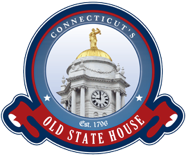




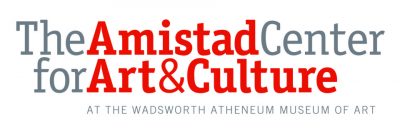
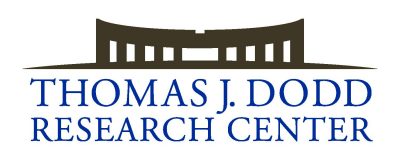
![]()
